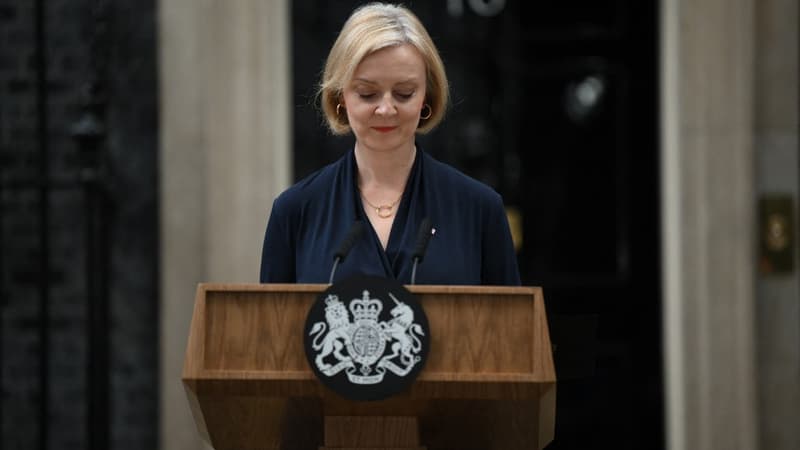She said she wanted to stay, eventually got kicked out. Liz Truss announced her resignation as UK Prime Minister on Thursday. She becomes the most short-lived Prime Minister in history, with 44 days in power.
“Given the situation, I cannot fulfill the mandate for which I was elected by the Conservative Party,” she said from 10 Downing Street.
Just six weeks into the job, Liz Truss’s situation at Downing Street has seemed increasingly untenable in recent days. This decision automatically leads to her resignation as head of the Conservative Party. She announced this Thursday a ballot to succeed him “next week.”
Cascading waivers
This is the case that had been fatal for Boris Johnson in July: resignations that are linked within a government that no longer trusts its leader.
Less than a week after having to fire her finance minister and great friend Kwasi Kwarteng, the prime minister suffered a new scare on Thursday with the resignation of her interior minister. Suella Braverman had on this occasion launched a strong accusation against Liz Truss, expressing her “serious concerns” about government policy, particularly immigration.
According to a YouGov poll, only one in ten Britons had a favorable opinion of Liz Truss, one in five among Conservative Party voters. 55% of party members also believed that Liz Truss should resign. Several elected officials, including MPs, had publicly urged him to leave her.
Abandonment of your economic program
Liz Truss had suffered an outcry when presenting her economic plan. The presentation at the end of September of his plans for massive tax cuts and colossal support to deal with energy bills had raised fears of a slip in the public accounts.
The pound had fallen to an all-time low and long-term government borrowing rates had soared. The Bank of England had to intervene to prevent the situation from degenerating into a financial crisis. Unauthorized, the Prime Minister had turned around and abandoned her economic program.
Politically, Liz Truss had come out of the episode with her authority in tatters, forced to enforce a policy she had until recently rejected.
What successor?
For the Conservatives, the challenge is to find someone who can unite the party and inspire confidence in a country that is going through a major economic and social crisis with inflation that has reached its highest point in 40 years.
Several names circulate, such as those of Rishi Sunak, Jeremy Hunt, Penny Mordaunt – the minister responsible for relations with Parliament – and even Boris Johnson, the prime minister whom she replaced in September.
The Labor opposition continues to cavort in the polls and its leader, Keir Starmer, has called for general elections to be held “now”.
Source: BFM TV


